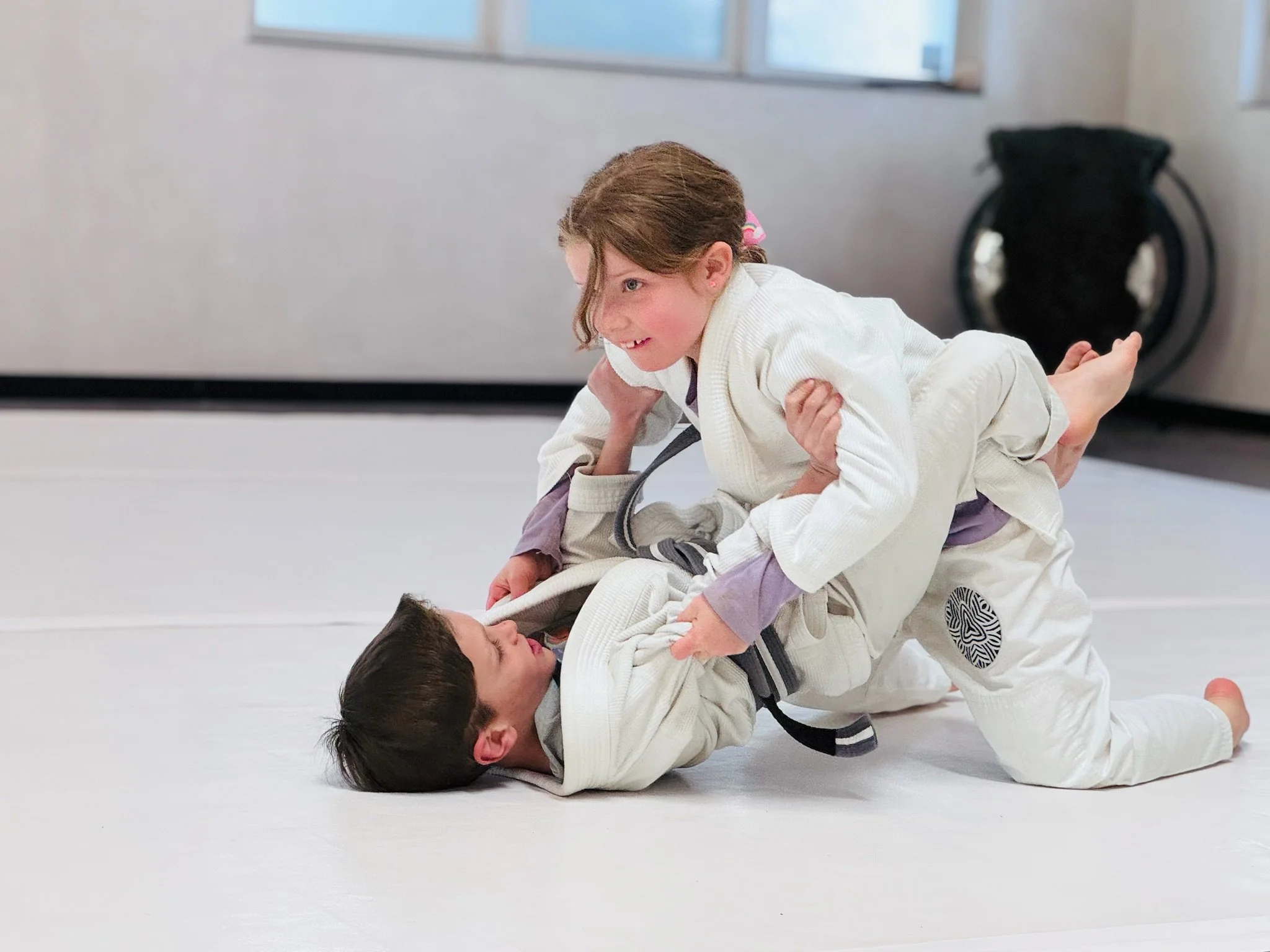The Social Superpowers of Jiujitsu: Building Teamwork and Friendships for Kids
By Professor Sachprakash, Jiujitsu Dharma Academy at Darruma
When we think of martial arts, we often picture individual achievement and self-discipline. However, practicing jiujitsu at Jiujitsu Dharma Academy offers so much more than just self-defense skills—it’s a gateway to developing lifelong social skills. From enhancing teamwork to forging deep friendships, jiujitsu provides a unique environment for children to develop their interpersonal abilities. Let’s dive into how jiujitsu can help your child thrive socially.
Strengthening Communication Skills
Communication is key in jiujitsu. During training, kids learn to express themselves clearly and assertively, whether they're asking a partner to adjust their grip or working with their instructor to overcome a challenge. These interactions help children enhance their verbal and non-verbal communication skills, which are crucial both inside and outside the dojo.
Real-Life Application: The ability to communicate effectively leads to improved relationships at school and at home, as kids become better at expressing their thoughts and feelings.
Fostering Teamwork
Unlike many other martial arts, jiujitsu often involves sparring and drills that require partners. This setup teaches children the importance of teamwork and mutual support. They learn that success in training often depends on working together, respecting each other’s strengths and weaknesses, and contributing to a shared goal.
Broader Impact: These teamwork skills are directly transferable to group projects and team sports, helping children become cooperative and supportive teammates in any group setting.
Building Lasting Friendships
The mats at Jiujitsu Dharma Academy are a place where many children find their closest friends. The shared experiences of learning, growing, and sometimes struggling together foster strong bonds that can last a lifetime. Jiujitsu teaches kids the value of trust and loyalty, as they regularly train and progress with peers who share similar goals and challenges.
Social Circle Expansion: As children make friends in jiujitsu, they expand their social circles and learn to interact with a diverse group of peers, enriching their social development.
Developing Social Confidence
Regular participation in jiujitsu boosts children’s confidence in their social abilities. As they become more comfortable in their skills and interactions on the mat, they also grow more confident in social situations outside of class. This confidence can help reduce social anxiety and make it easier for children to make new friends, speak up in class, and engage in new activities.
Confidence Benefits: A confident child is more likely to take on leadership roles, participate in discussions, and approach new challenges with a positive mindset.
Cultivating Respect and Empathy
One of the core values of jiujitsu is respect—for instructors, peers, and the art itself. Children learn to treat others with kindness and consideration, understanding that everyone is on their own unique journey. This respect fosters empathy, as kids begin to understand and appreciate different perspectives and experiences.
Empathy in Action: Developing empathy enhances children's emotional intelligence, helping them build healthier, more understanding relationships with others.
Conclusion
Jiujitsu offers a full spectrum of social benefits that go well beyond physical fitness. At Jiujitsu Dharma Academy, we are proud to see our young students grow not only as martial artists but also as empathetic, communicative, and confident individuals. If you’re looking for a sport that supports your child’s social development while keeping them active and engaged, jiujitsu might just be the perfect fit.
Join us on the mats, and watch your child thrive in an environment that celebrates teamwork, friendship, and mutual respect—skills that will serve them well throughout their lives.

